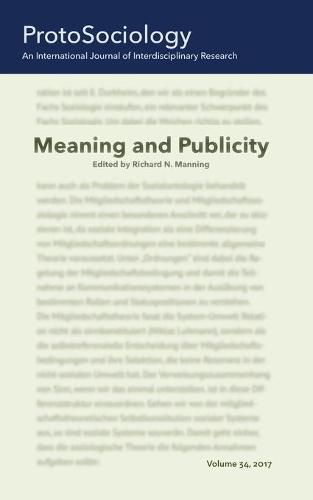Readings Newsletter
Become a Readings Member to make your shopping experience even easier.
Sign in or sign up for free!
You’re not far away from qualifying for FREE standard shipping within Australia
You’ve qualified for FREE standard shipping within Australia
The cart is loading…






This title is printed to order. This book may have been self-published. If so, we cannot guarantee the quality of the content. In the main most books will have gone through the editing process however some may not. We therefore suggest that you be aware of this before ordering this book. If in doubt check either the author or publisher’s details as we are unable to accept any returns unless they are faulty. Please contact us if you have any questions.
The papers collected in this volume all discuss the ways and extent to which the determinants of meaning must be public. In the philosophy of language there are currently two main traditions concerning the relationship between meaning and public phenomena. According to one tradition language is public in principle, so that there can be nothing to the meaning of linguistic expressions that cannot be accounted for in terms of the behaviour in context of linguistic subjects. According to the other tradition linguistic meaning is determined by the content of the mental representations that are expressed in overt speech acts. On such views, the properties of the mental are prior to language and linguistic meaning should be explained by appeal to mental concepts. There divergent traditions leave us with a question: Is linguistic meaning to be explained on the basis of a pre-linguistic biological or mental capacity which goes public
in overt speech, or is it to be explained on the basis of pubic behaviour in context which goes private in thought, and which determines the contents of the mental?
$9.00 standard shipping within Australia
FREE standard shipping within Australia for orders over $100.00
Express & International shipping calculated at checkout
This title is printed to order. This book may have been self-published. If so, we cannot guarantee the quality of the content. In the main most books will have gone through the editing process however some may not. We therefore suggest that you be aware of this before ordering this book. If in doubt check either the author or publisher’s details as we are unable to accept any returns unless they are faulty. Please contact us if you have any questions.
The papers collected in this volume all discuss the ways and extent to which the determinants of meaning must be public. In the philosophy of language there are currently two main traditions concerning the relationship between meaning and public phenomena. According to one tradition language is public in principle, so that there can be nothing to the meaning of linguistic expressions that cannot be accounted for in terms of the behaviour in context of linguistic subjects. According to the other tradition linguistic meaning is determined by the content of the mental representations that are expressed in overt speech acts. On such views, the properties of the mental are prior to language and linguistic meaning should be explained by appeal to mental concepts. There divergent traditions leave us with a question: Is linguistic meaning to be explained on the basis of a pre-linguistic biological or mental capacity which goes public
in overt speech, or is it to be explained on the basis of pubic behaviour in context which goes private in thought, and which determines the contents of the mental?